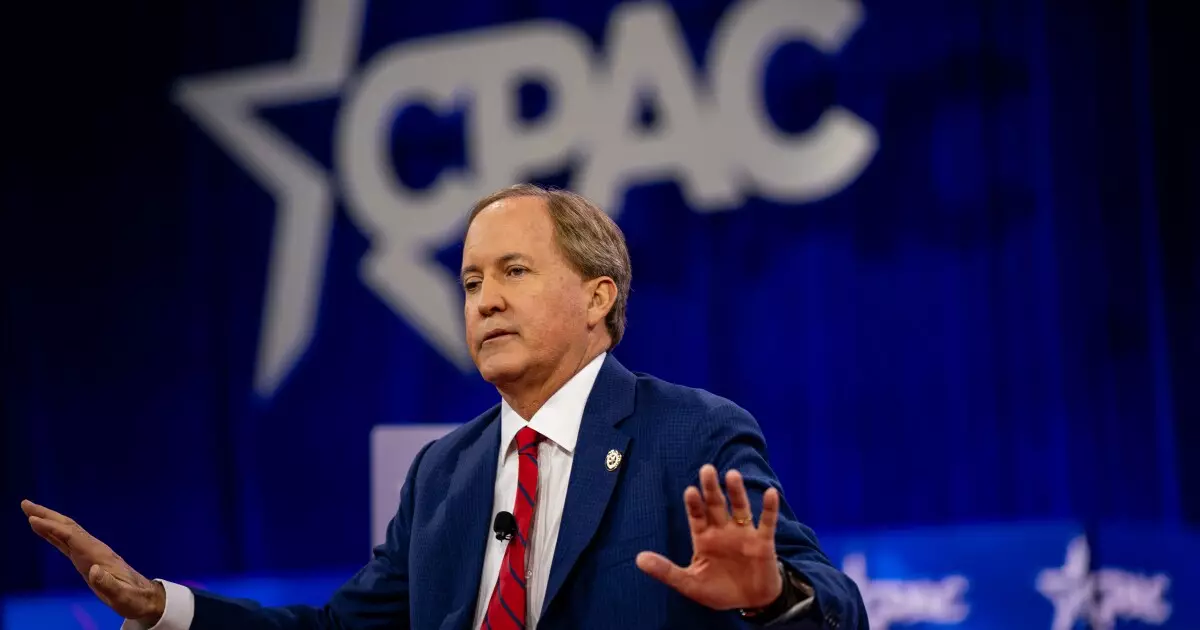In a significant development regarding the nexus of finance and environmental policy, Texas Attorney General Ken Paxton has welcomed the withdrawals of Bank of America, Morgan Stanley, and JP Morgan from the Net-Zero Banking Alliance (NZBA). His announcement is heralded as a victory for Texas’s fossil fuel industry under the aegis of legislation aimed at curbing what is perceived as an anti-energy bias among financial institutions. This situation opens a broader discussion on the balancing act between climate commitments and state-level energy policies, particularly in a state that heavily relies on fossil fuel production.
The Legal Framework Behind the Reviews
Texas has implemented stringent laws concerning business engagements with companies that appear to boycott the fossil fuel sector. Under a law enacted in 2021, entities contracting with the state for amounts over $100,000 are prohibited from engaging in practices that could be construed as boycotting the energy sector. This law serves as the backbone of Paxton’s reviews of major banks, which began in late 2023. By publicly addressing the implications of the banks’ affiliations with environmental initiatives, particularly the NZBA’s commitment to reaching net-zero greenhouse gas emissions by 2050, Paxton signals a robust agenda to protect Texas’s energy interests against what he identifies as radical environmentalism.
The exit of these banks from the NZBA isn’t merely symbolic; it carries profound ramifications for their operations within Texas. Paxton has stated that membership in the NZBA could jeopardize their ability to provide services to state and local government entities, including underwriting municipal bonds. This presents a clear incentive for financial institutions to reconsider their positions on environmental alliances, especially in states with significant fossil fuel industries. Furthermore, Paxton’s office has indicated that ongoing reviews of other banks, such as RBC Capital Markets, will consider their adherence to Texas’s laws regarding discrimination against the firearm sector, showcasing a multifaceted approach to regulating financial institutions’ stances on controversial social issues.
As Paxton champions this development in Texas, other states are observing closely, particularly those with energy-centric economies. The implications of these legal contests extend beyond Texas, with similar legislative efforts proliferating across various states as a counter-movement against perceived corporate overreach regarding social issues. Notably, a federal lawsuit has emerged, challenging the constitutionality of Texas’s laws aimed at addressing fossil fuel boycotts. This legal friction suggests a growing tension between state laws designed to safeguard local industries and the broader societal push toward sustainable practices among financial entities.
Interestingly, the banks’ withdrawal from the NZBA doesn’t indicate a retreat from their commitments to sustainability. Statements from JP Morgan express a continued dedication to supporting low-carbon technologies and enhancing energy security. Similarly, Morgan Stanley clarified that its commitment to reducing carbon emissions remains steadfast even as it forges a new path unbound from the NZBA’s framework. This duality highlights the complexity and nuance within corporate strategies where firms seek to maintain a pro-environmental posture while navigating political and economic realities in states like Texas.
The Economic Landscape Moving Forward
As these banking institutions pivot away from alliances seen as antagonistic to local economic interests, it raises pertinent questions about the future of environmental finance. Will banks be willing to invest in renewable energy projects in Texas if they jeopardize their standing with the state government? Conversely, how might these moves impact Texas’s global standing as an energy-producing powerhouse? The ongoing developments reflect a broader trend where economic and environmental priorities often conflict, compelling both businesses and governments to engage in continuous dialogue.
Paxton’s reactions exemplify the dichotomy facing financial institutions operating in politically charged environments. As they navigate the complexities posed by state laws and their commitments to sustainability, the future of finance will likely hinge on balancing these competing imperatives. Stakeholders must prepare for an increasingly intricate landscape influenced by legal challenges and shifting corporate strategies, ultimately shaping the narrative surrounding energy and finance in Texas and beyond.


Leave a Reply